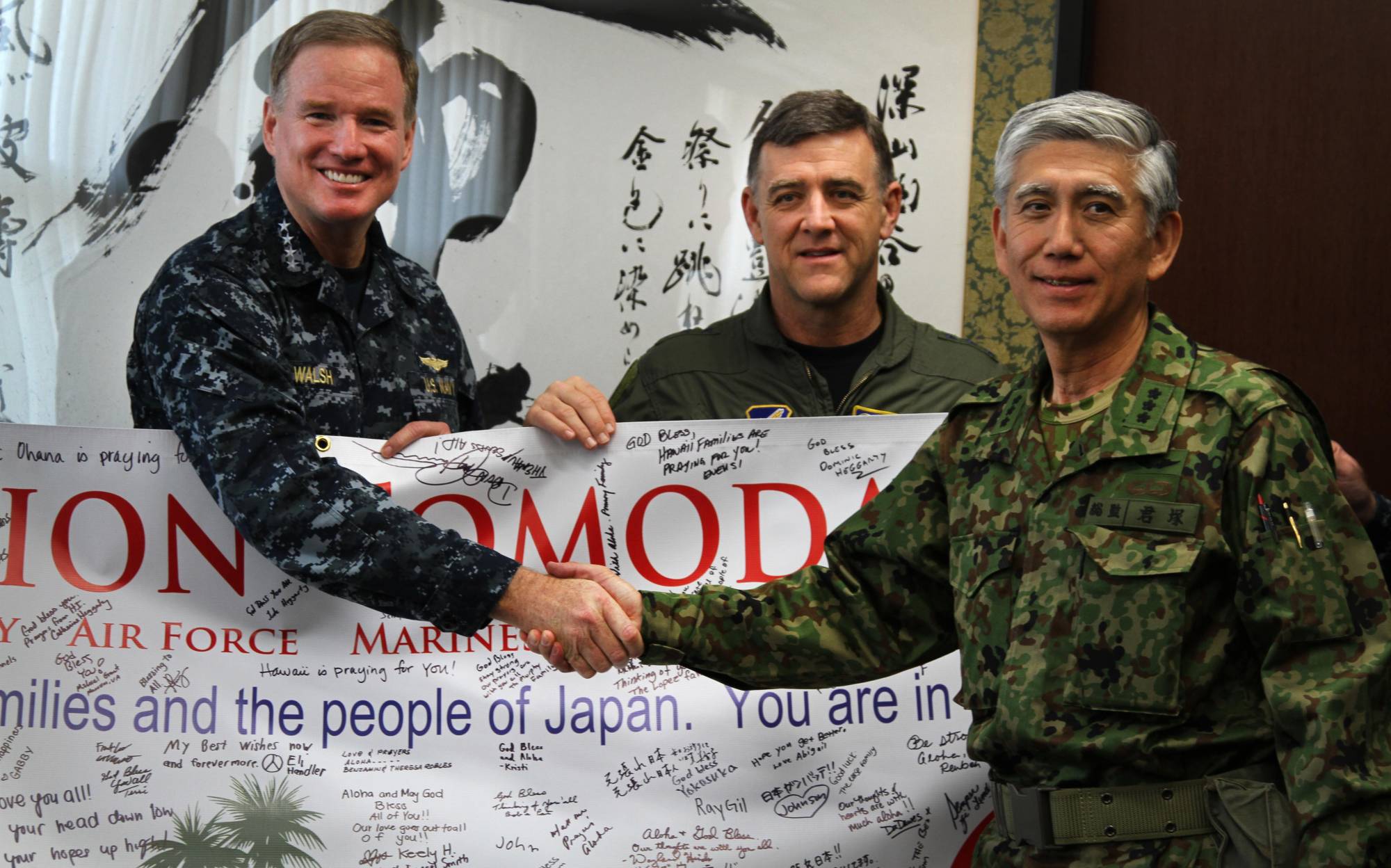Nearly 12 years since the March 11, 2011, earthquake and tsunami hit the Tohoku region, triggering the worst nuclear crisis in recent memory, a day of tragedy can now also be seen as one that set in motion a broad and important shift for the Self-Defense Forces and the country’s alliance with the United States.
In retrospect, the day is proving to have been a turning point in the more than 70-year-old alliance. At the time, what former U.S. Ambassador to Japan Mike Mansfield termed “the most important bilateral relationship in the world” was in 2011 facing strains over the then-governing Democratic Party of Japan’s handling of ties as well as backpedaling on a controversial agreement to move the Futenma Air Base in Okinawa Prefecture. Yet the alliance saw a dramatic improvement in the weeks, months and years following the two countries’ disaster response.
The Japan Times sat down with two of the allies’ top military commanders overseeing those relief operations and the response to the triple-disaster, which killed nearly 20,000 people and left scores homeless, to get their perspectives on what happened in the ensuing days, as well as the indelible impact it had on the alliance.

















With your current subscription plan you can comment on stories. However, before writing your first comment, please create a display name in the Profile section of your subscriber account page.